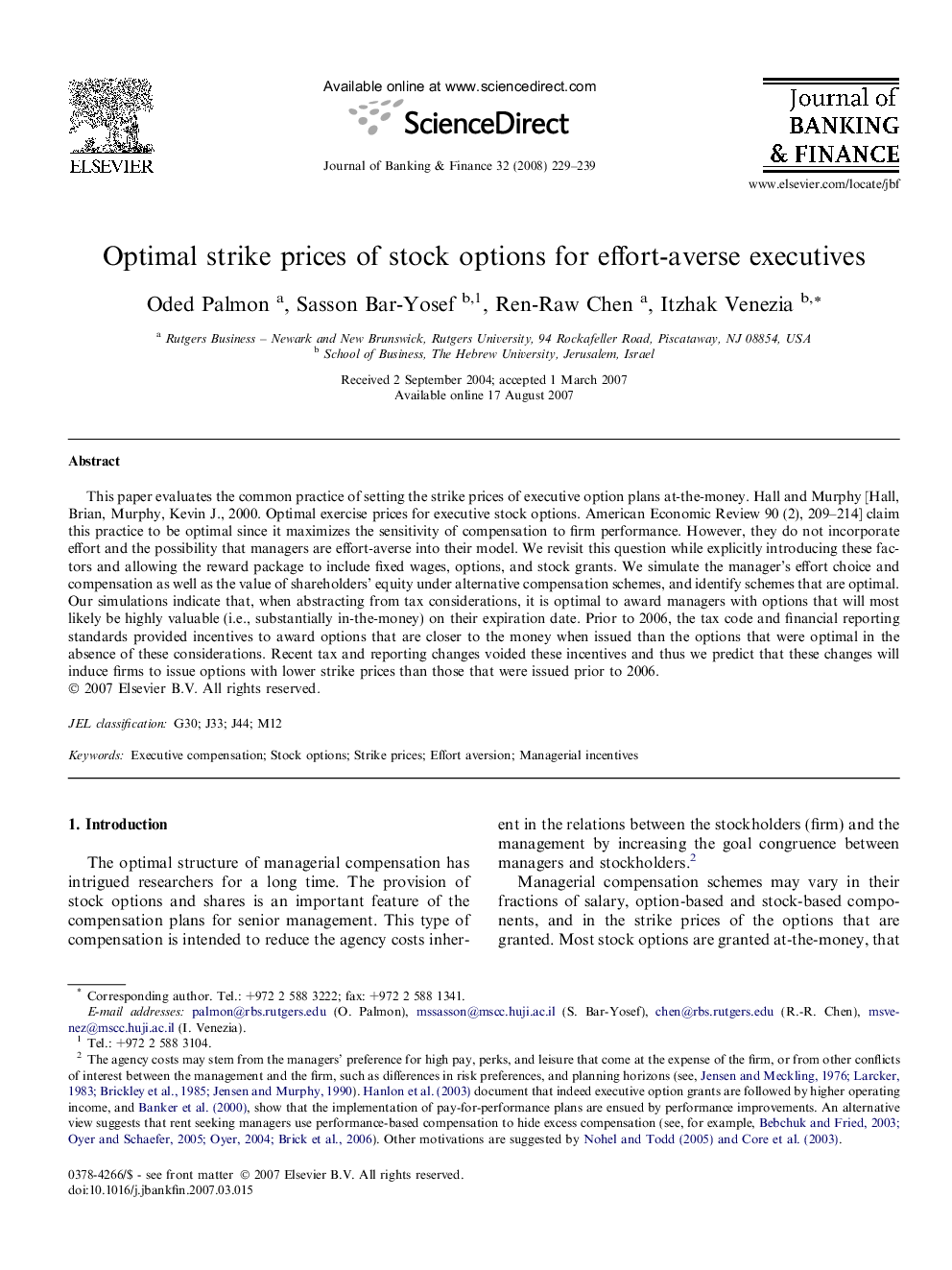| Article ID | Journal | Published Year | Pages | File Type |
|---|---|---|---|---|
| 5091033 | Journal of Banking & Finance | 2008 | 11 Pages |
Abstract
This paper evaluates the common practice of setting the strike prices of executive option plans at-the-money. Hall and Murphy [Hall, Brian, Murphy, Kevin J., 2000. Optimal exercise prices for executive stock options. American Economic Review 90 (2), 209-214] claim this practice to be optimal since it maximizes the sensitivity of compensation to firm performance. However, they do not incorporate effort and the possibility that managers are effort-averse into their model. We revisit this question while explicitly introducing these factors and allowing the reward package to include fixed wages, options, and stock grants. We simulate the manager's effort choice and compensation as well as the value of shareholders' equity under alternative compensation schemes, and identify schemes that are optimal. Our simulations indicate that, when abstracting from tax considerations, it is optimal to award managers with options that will most likely be highly valuable (i.e., substantially in-the-money) on their expiration date. Prior to 2006, the tax code and financial reporting standards provided incentives to award options that are closer to the money when issued than the options that were optimal in the absence of these considerations. Recent tax and reporting changes voided these incentives and thus we predict that these changes will induce firms to issue options with lower strike prices than those that were issued prior to 2006.
Related Topics
Social Sciences and Humanities
Economics, Econometrics and Finance
Economics and Econometrics
Authors
Oded Palmon, Sasson Bar-Yosef, Ren-Raw Chen, Itzhak Venezia,
